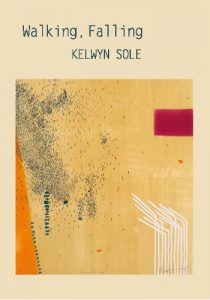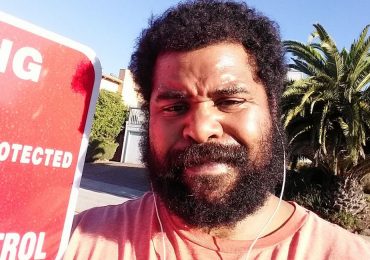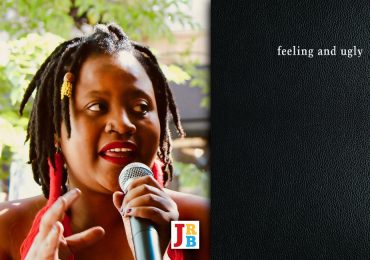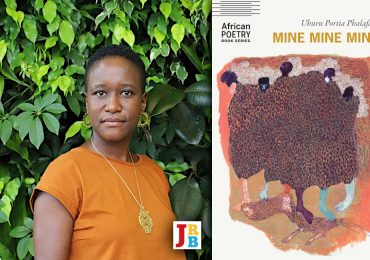 Kelwyn Sole
Kelwyn Sole
Walking, Falling
Deep South Publishers, 2017
Read Rustum Kozain’s review of this collection: A steady vigil over the slow death of the anti-apartheid dream
The leader
1
Will the reverential toyi-toyis ever
unstick themselves from this jackal?
Fattened, he will not lose his nature;
merely convince us, sheep, to offer ourselves
up to his incantations more often: one
more time, just one more time …
for we are seeds
scattered, a bafflement
windmilling in the dust,
as he
is a gourd, with his hard skin
and we pelt him with our word selves,
our ever useless anger,
knowing he is hardness but never seed,
not like ourselves, as his skin
grows thicker and he balloons always
bigger, bigger,
and we know
if he pops, we will no longer recognise
him in ourselves among all the
explosions, confusions:
the sudden dead children in the grass.
2
There is no way to steal the yeast
of the bread that rises to succour
him and his rats’ nest of power,
or to turn his feasts of arrogance
his plunderings of language
into a leaven of compassion.
He keeps on living in his skinscape
of callousness and gluttony, where
the compradors have pitched their obese
wagon
trying to blind themselves
to themselves, himself to himself,
himself his only motive: the endless,
fawning, encrafted devices of his
self-aggrandisement.
Consider this
Here everyone lives in genuflection
to themselves, to their masters, or to those
who cover their own carapace with words
to convince all the rest of us of their
woundedness. Hysterics on Twitter behead
the sentence, recycling clichés and abuse.
No one here admits we are all ramshackle:
no one admits we are so in love with
the mausoleum of grievance and power that
we wound ourselves. And to help us
the Shining Ones are always with us:
who discover the brightness of a conviction
then roll their words towards us, backwards
like little dung beetles, so if we ceased
to be bedazzled, we’d see only arse.
Your body fills my night
Starless,
but your body fills
my night –
you, with
two scars on your stomach,
two stabs,
two wounds;
when you undress they show
themselves
as screams
relived, commas where your life
once faltered
– two memories
of a knife, the size and shape of
blinding pennies –
in darkness
black as this, they turn to pits
beneath my nails …
I don’t know
all your story. But no words can
encompass these:
all I know
is that when your belly bares
its witness
your nakedness
lights up my night. For your body
has its own
two stars.
Content removed
And freedom came …
and we cheered and stood
in long queues
made marks on paper while
jets flew over the podium but
the speeches were faint in our ears
because we stood at the back
but that mattered not at all
we cheered nevertheless
cheered and cheered again
some went back to their fields
and started to till
because they could no longer wait
did not pause to think to wonder
why the words they heard
seemed dipped in so much syrup
others, went back to their shacks
standing tipsily in yellow grass
creaking and fluttering walls
in a malfeasance of rain
sly natterings of wind began
to talk to grumble just
like a long-suffered relative
but they had patience still
watched their children hunker down
to shit among the rubble ruins
with no knowledge of time spent
no arithmetic except for was it
their own ribs which they counted
but these days the big men chase
after their own words as if
these were soap bubbles, as if
our hopes were frivolous, and could
be treated lightly: and we and they
were merely children playing
harmlessly, in sun
while between them and us
is a line of men in blue, in uniform,
who themselves seem to be looking
over our heads somewhere
at someone else.
Yes. The vultures dress in suits,
step over one another and over us
in their haste for carrion. They describe
a dawn that we shall never see
and the wind shouts and shouts again
but we are silent as the grave
___
© Kelwyn Sole, 2017
Kelwyn Sole is Professor Emeritus at the University of Cape Town, having taught in the Department of English there from 1987 to 2016, retiring as De Beers Chair of English Literature. He has published seven volumes of poetry. This selection is from his latest, Walking, Falling.





